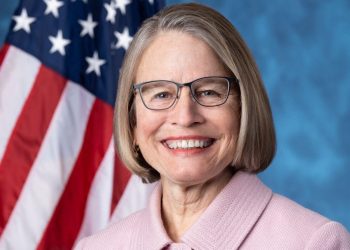WASHINGTON – The U.S. House of Representatives voted 247 to 178 to pass H.R. 2062, the Protecting Older Workers Against Discrimination Act of 2021, on Wednesday afternoon. Twenty-nine Republicans joined Democrats to support the bill.
Iowa’s members of the U.S. House split their vote. U.S. Reps. Cindy Axne, D-Iowa, and Ashley Hinson, R-Iowa, voted in favor of the bill. U.S. Reps. Randy Feenstra, R-Iowa, and Mariannette Miller-Meeks, R-Iowa, voted against it.
The standard for rulings on age bias was changed in 2009 when the Supreme Court ruled against Jack Gross, a West Des Moines insurance company supervisor, who was included in a mass demotion of older supervisors, all over the age of 50, at the company following a corporate merger.
Before the ruling against Gross, plaintiffs in age discrimination cases needed to prove that age was a factor in an employer’s adverse action. The ruling raised the burden of proof, requiring age to be the sole motivating factor in action taken against the employee. Legislation passed by the House today would return future cases to the pre-2009 standard.
“The Supreme Court set an impossibly high bar for older Iowa workers like Jack Gross to receive protections against bias in the workplace. This is especially concerning as many older Iowans are working later into their life,” Axne said. “This legislation restores the protections that would have helped Jack Gross keep his position. I’m proud of my vote today to reverse that ruling because bias against older Americans in the workplace is unacceptable.”
“No one should face discrimination at work for any reason, including age,” Hinson stated. “This bipartisan legislation will help ensure that older workers can continue to bring their expertise to the workplace, provide for their families, and contribute to the economy without fear of age-based discrimination.”
An AARP survey conducted in 2018 found that three in five workers age 45 and older had seen or experienced age discrimination. In 2017, the Equal Employment Opportunity Commission (EEOC) received almost 20,000 complaints of age discrimination – making up 22 percent of all discrimination charges filed with the EEOC that year.














